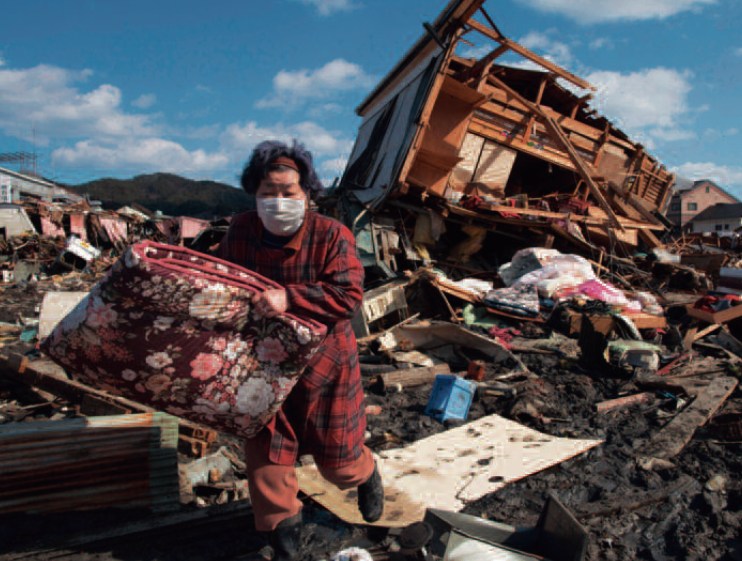
It showed insurance is a tangible thing

It can lead you astray,” says Rupert Moore with a chuckle as we discuss Japan’s variety of fried food options. It’s a country he knows well – Moore, now UK CEO of Reinsurance Solutions for global professional services giant Aon, worked out there for the firm for 10 years.
And it’s to Japan he goes when I ask him about a piece of work he’s particularly proud of.
“The earthquake and tsunami in Japan in 2011 left huge devastation, and we represented a lot of the large mutual insurers and a number of large companies,” he tells me.
“There was one particular mutual that had seen their whole coastline of properties destroyed, but the majority of the losses were insured and when we went up there a few years afterwards the local team were hugely emotional, telling us about the damage to the community and how the insurance and reinsurance industries had enabled them to rebuild.
“There are countless examples across the world of this type of situation, but that was just one that makes you feel pretty good about what you do – something to touch and feel; a tangible thing.”
Indeed insurance, at its heart, provides exactly that – help and support in tough times. But in London it’s more than that, with the insurance and reinsurance markets supporting and enabling global commerce. Simply put, without insurance, not a lot of business gets done – by de-risking investments, the industry provides the certainty for firms to get on and grow.
London remains its global centre, with Aon’s offices a stone’s throw from Leadenhall Market and the Lloyd’s building a key, beating heart of the industry. Moore is a ‘lifer’ – joining Aon as a graduate some 23 years ago. He’s spent 14 years abroad – Japan, Hong Kong, and three years in the US – and now back in London, he’s well-placed to opine on the changes to the industry over more than two decades, both in terms of the work and those working in the sector.
“I think probably the biggest change is how important analytics is,” he says. Over decades, Aon has increasingly invested in highly sophisticated data models and academic collaborations in order to assess its clients’ exposures, or the likelihood of a particular event occurring, and enable better decision-making. That’s become especially relevant in recent years when it comes to catastrophe insurance, with so-called severe weather events increasing in regularity.
“It’s true insight into everything from hurricanes to earthquakes – and what’s changed is how much time and effort and investment we put into those,” says Moore.
“When I first joined there wasn’t really a great deal of analytics technology in London, and now it’s front
and centre.”
In that sense, it’s a sign of how much more sophisticated the industry has become – and the new skills the biggest players require.
“Different skill sets have become essential as the industry has become more technical and analytical,” he continues.
“We now need not only people who can transact business, but those who can create specialist tools such as financial and catastrophe models; the industry now draws upon a wide range of diverse skills.
“There’s also a huge demographic change taking place, with a lot of people retiring or about to retire – which to me looks like a tremendous opportunity for career-minded young talent.
“The grad scheme I joined more than 20 years ago had about 14 or 16 of us. Now we hire about 50 school leavers and graduates just for reinsurance, and about 250 across UK insurance.”
Those new starters, Moore reckons, will benefit from a sector which has always been collaborative. Career veterans are keen to pass on their knowledge to those who join the insurance and reinsurance industries – which Moore says are the “best kept secret” in the Square Mile.
“It’s a fantastic opportunity,” he says.
Certainly, it appears the old stereotypes of insurance are out of date in an industry that has become a sophisticated, multi-faceted London success story.